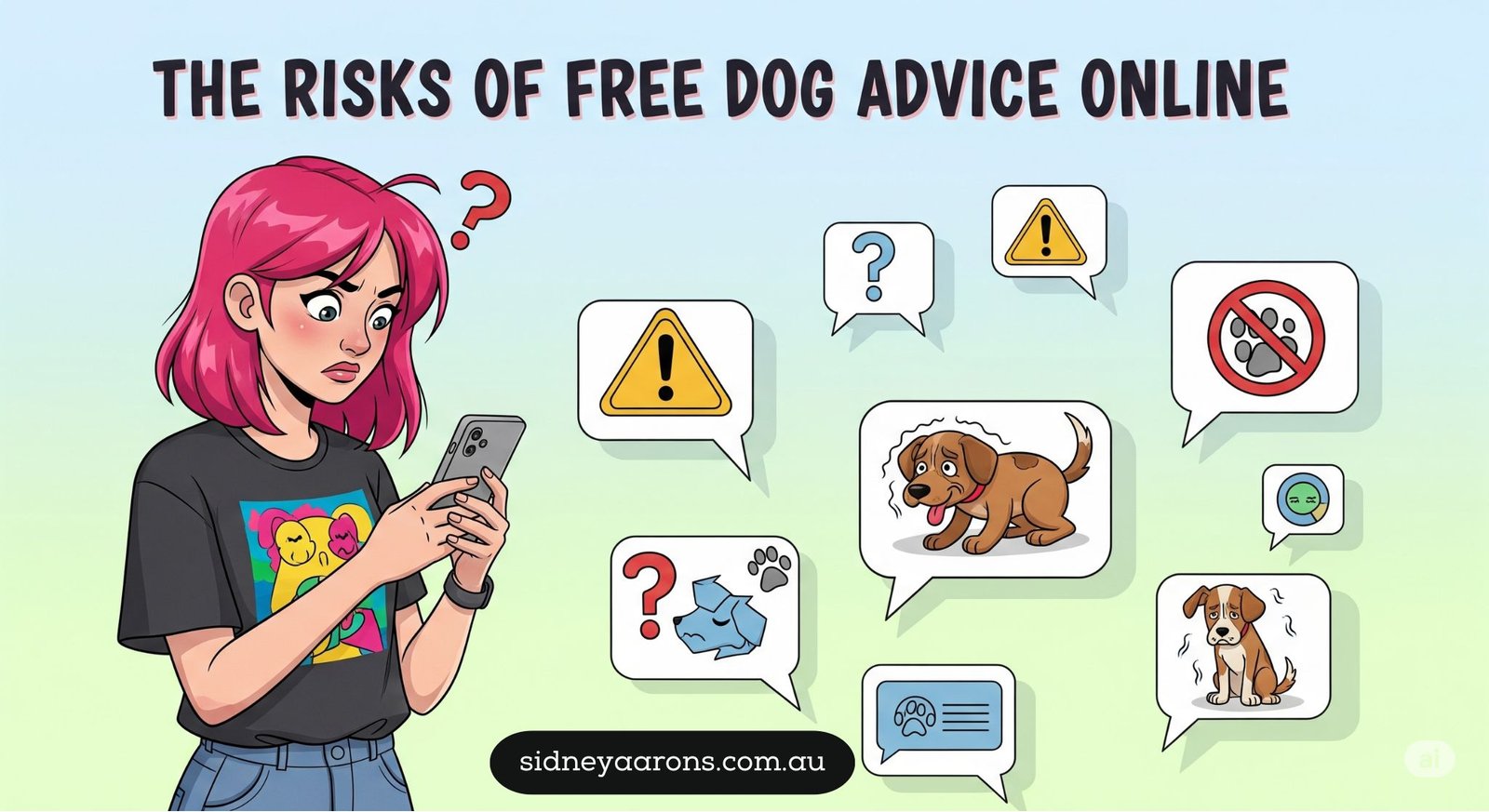
As dog owners, we all want the best for our furry companions, and it’s tempting to turn to online pet owner groups or social media for quick, free advice on dog behaviour issues. While these platforms can feel like a supportive community, relying on them for guidance comes with significant drawbacks.
Here’s why seeking free dog behavior advice from pet owners online can be risky, uneducated, and heavily biased.
Most pet owners in online groups are not trained professionals. While they may love their dogs and have personal experience, their advice often lacks the scientific grounding or behavioural expertise needed to address complex issues like aggression, anxiety, or compulsive behaviours.
For example, a 2023 study from the Journal of Veterinary Behavior found that 68% of dog owners who followed untrained advice online saw no improvement or worsening in their dog’s behaviour. Without a foundation in canine psychology or training methodologies, suggestions from these groups can be hit-or-miss, potentially harming your dog’s well-being.
Online advice is often shaped by personal anecdotes rather than universal truths. A pet owner might swear by a method that worked for their dog, but every dog is unique—what works for one may be disastrous for another.
For instance, recommending positive-based training techniques is common in groups, despite being debunked by experts. These biased suggestions can lead to harmful practices, especially when users present their opinions as facts.
Social media platforms and pet owner groups are breeding grounds for misinformation. A single post claiming a quick fix for separation anxiety or leash reactivity can go viral, even if it’s based on myths or unverified claims.
Without moderation from qualified professionals, these groups often amplify misleading advice. For example, a 2024 analysis of pet-related posts on X revealed that 43% of behavior advice shared contained inaccuracies, such as promoting positive-based methods over balanced reinforcement, which can escalate fear or aggression in dogs.
Dog behaviour issues are complex and require individualized solutions. Online groups tend to offer generic tips without considering your dog’s breed, age, history, or environment.
A suggestion to “tire out” a hyperactive dog might work for some, but it could exacerbate stress in a dog with underlying anxiety. Certified dog trainers, on the other hand, assess the root cause of a behaviour before recommending a tailored plan—something online groups rarely do.
Pet owner groups often become echo chambers where popular opinions drown out critical thinking. If a user posts about a specific training method, others may pile on with similar experiences, reinforcing potentially flawed advice.
This confirmation bias can make it hard to discern what’s actually effective.
Instead of relying on free online advice, consult a certified dog trainer. These professionals have the education and experience to provide evidence-based solutions tailored to your dog’s needs.
If you must use online platforms, cross-check advice with credible sources and avoid acting on suggestions without professional validation.
While online pet owner groups can offer community and emotional support, they’re not a reliable source for dog behaviour advice. The lack of expertise, heavy bias, and spread of misinformation can lead to ineffective or even harmful solutions.
Your dog deserves better—seek guidance from qualified professionals to ensure their behaviour issues are addressed safely and effectively.
Have you encountered questionable advice online? Share your thoughts below, and let’s keep the conversation going!
© 2026 All Rights Reserved.
Get notified about new Seminars, Coupons and Discounts.